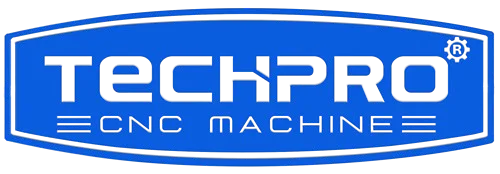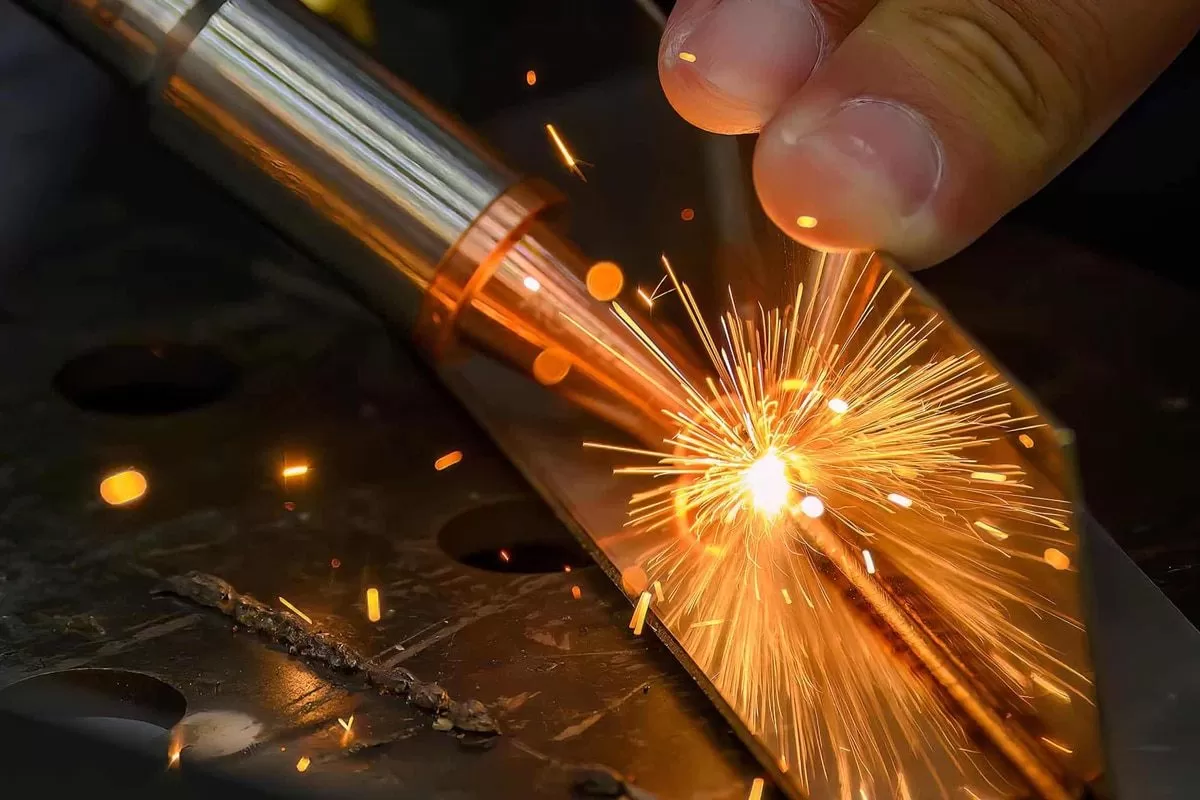What Are CNC Routers and Laser Cutters
When it comes to cutting and shaping materials, CNC routers and laser cutters are two popular machines in the workshop. Both are computer-controlled tools designed to turn your digital designs into real-world projects, but they work in very different ways.
CNC Router Overview
A CNC router uses a spinning cutting bit to carve, cut, or engrave materials like wood, plastic, and some metals. It moves along multiple axes to create precise shapes, including 3D designs. These machines are especially common in woodworking and cabinet making, where detailed cuts and carvings are needed.
Laser Cutter Overview
Laser cutters use a concentrated beam of light to cut or engrave materials. They’re great for detailed, clean cuts on thin materials such as wood, acrylic, fabric, paper, and some metals. The laser’s precision makes it ideal for intricate designs and quick engraving tasks.
Key Similarity
Both CNC routers and laser cutters follow computer-generated patterns to ensure high accuracy and repeatability. Whether you’re making a detailed wood sign with a CNC wood router or cutting intricate pieces with a laser cutter, the digital control allows for consistent results every time.
Key Differences Between CNC Routers and Laser Cutters
Cutting Mechanism
CNC routers use a spinning cutting bit to carve or cut material by physically removing it. This makes them great for 3D carving and shaping thick materials. Laser cutters, on the other hand, use a focused laser beam to burn or vaporize the material surface for cutting or engraving. This allows for incredibly detailed cuts without physical contact.
Material Compatibility
CNC routers can handle a wide range of materials like wood, plastics, soft metals, and composites. They are excellent for thicker or harder materials where cutting depth matters. Laser cutters work best with thinner materials such as wood, acrylic, certain plastics, paper, and fabric. Some metals can be cut with specialized lasers but typically at higher costs.
Precision and Finish
Laser cutters offer very high precision with clean, sharp edges and fine detail, especially for intricate designs. CNC routers deliver good precision too but may leave tool marks that require sanding or finishing. For 3D carving and shaping, CNC routers have the edge.
Speed and Efficiency
Laser cutters often operate faster for cutting thin materials due to their non-contact process, reducing wear and tear. CNC routers may take longer because of the physical cutting but can handle more diverse tasks in one machine, including drilling and 3D shaping.
Cost and Maintenance
Generally, CNC routers tend to be more affordable upfront, especially for basic woodworking CNC machines, and maintenance focuses on tool replacement and calibration. Laser cutters can be pricier, with higher maintenance costs tied to optics and laser tube replacements. However, laser cutter costs have been decreasing, making them more accessible.
Understanding these differences helps you pick the right tool for your projects, whether it’s woodwork, plastic fabrication, or detailed engraving.
Pros and Cons Comparison
CNC Router
Pros
- Great for 3D carving and detailed woodworking applications
- Handles a wide variety of materials like wood, plastics, and soft metals
- Offers strong cutting power for thicker materials
- Useful for making furniture, signs, and parts with depth
Cons
- Larger footprint, needs more workspace
- Generally louder and produces dust, so ventilation is needed
- Setup and tool changes can take longer
- Higher maintenance with mechanical parts like bits and spindles
Laser Cutter
Pros
- Extremely precise cuts and intricate details, ideal for fine engraving
- Works well with thinner materials such as acrylic, fabric, paper, and wood
- Minimal material waste and cleaner edges
- Quieter operation with less dust
Cons
- Limited in cutting thicker, harder materials compared to CNC routers
- Laser source and optics may need costly replacements
- Safety precautions necessary due to laser exposure
- Can be slower on heavy-duty cutting projects
Comparison Table
| Feature | CNC Router | Laser Cutter |
|---|---|---|
| Cutting Style | Mechanical (router bit) | Optical (laser beam) |
| Material Compatibility | Wood, plastics, soft metals | Wood, acrylic, fabric, paper |
| Precision | Good for 3D work, less sharp edges | High precision, very clean edges |
| Speed | Faster on thick materials | Faster on thin and intricate cuts |
| Maintenance | More routine maintenance | Optics and laser source upkeep |
| Noise and Dust | Loud with dust production | Quieter, less dust |
| Cost | Moderate to high | Moderate to high, varying by laser power |
| Ideal Projects | Furniture, signs, parts with depth | Engraving, hobby crafts, precise cuts |
This quick look at the pros and cons helps to pinpoint the strengths of each tool. Depending on your project needs—whether it’s depth and power or precision and fine detail—one might stand out as the better fit.
Which Machine Suits Your Needs
Project-Based Recommendations
Picking between a CNC router and a laser cutter really boils down to what projects you have in mind:
- Woodworking and 3D Carving: CNC routers shine here. They handle thick wood, plastics, and even some metals great for furniture, signage, and artistic carvings.
- Fine Details and Engraving: Laser cutters excel with fine, precise cuts and engraving tasks, especially on thinner materials like veneers, acrylic, paper, and leather.
- Prototyping and Small Cuts: If your work requires quick, clean cuts for flexible projects, laser cutters can speed things up.
- Heavy-Duty Cutting: For larger, tougher materials, CNC routers are the go-to tool in workshops.
Budget Considerations
Your budget plays a big part in choosing the right machine:
- Initial Cost: Laser cutters typically cost more upfront than CNC routers. If you’re just starting or want to save on setup, a CNC router might stretch your dollars further.
- Operating Costs: Laser machines require regular replacements of laser tubes and optics, which can add up. CNC routers mainly need periodic tool changes and maintenance.
- Long-Term Investment: Think about the kinds of jobs you’ll get most – the right machine saves you time and materials, which pays off beyond the initial price.
Skill Level
Consider what kind of experience you have:
- Beginners: CNC routers generally offer simpler learning curves, especially for woodworking applications and 3D carving.
- Intermediate to Advanced Users: Laser cutters might require more fine-tuning knowledge, especially handling different material responses and safety precautions.
- Software Familiarity: Both machines use CAM software, but laser cutters often demand more attention to detail in preparation and settings to get that perfect cut or engraving.
Matching your current skills and how quickly you want to ramp up will help prevent frustration and make your investment worth it.
Why Choose TechCNC
Choosing the right machine matters, and TechCNC stands out for US customers who want reliability and value. Here’s why TechCNC is a smart pick for your CNC router or laser cutter needs:
- Proven Quality: TechCNC machines are built tough with consistent performance, helping you tackle everything from woodworking projects to detailed 3D carving without breaking a sweat.
- Great Support: Whether you’re new or a seasoned pro, TechCNC provides local-friendly customer service and easy-to-access help so you’re never left hanging.
- Wide Range of Options: TechCNC offers both CNC routers and laser cutters tailored to different budgets and project needs, meaning you can pick exactly what fits your workshop or business.
- User-Friendly Features: The machines come with straightforward controls and software that don’t require a tech degree, perfect for users in the US market who value simplicity along with power.
- Competitive Pricing: TechCNC balances cost and capability well, making it a competitive choice compared to other brands in laser cutter costs and CNC router pricing.
- Community and Reviews: TechCNC machine reviews from US customers show positive feedback on durability, precision, and ease of use, giving you peace of mind before investing.
In short, TechCNC blends affordability, quality, and support to help you get the best results whether you go with a CNC router or a laser cutter. It’s a solid fit for local makers, small businesses, and hobbyists looking to maximize value without compromise.





